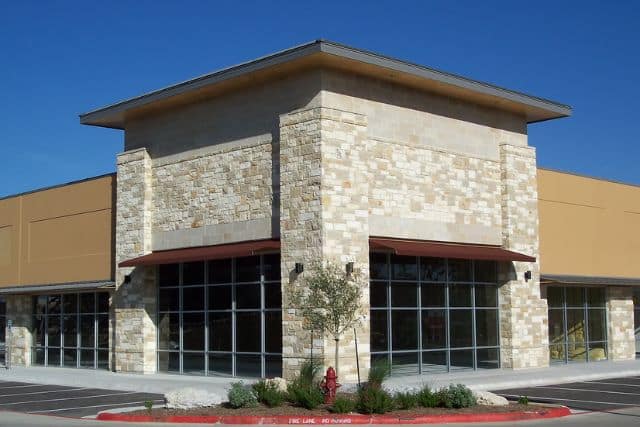When drafting commercial leases, there are many important NNN lease clauses that landlords and tenants should carefully review. These provisions go beyond the standard letter of intent. Many landlords rely on industry lease templates or attorney-prepared forms. Meanwhile, national tenants often use their own leases to streamline operations across multiple properties. Each lease is unique, written by different attorneys with varying experiences. This is why close attention to detail in any nnn lease clause is essential.
We will be discussing nineteen key issues that should be reviewed and included when drafting a NNN lease agreement. These are not exclusive but represent important issues. Their careful consideration will deliver superior results for both lessees and lessors over the term of a lease.
Important Disclosure
I am not an attorney, but I do have more than 40 years of experience with leases and lease forms. I have seen what can go right if we plan ahead and what can go wrong if we do not. All leases, even those with lease forms, should be reviewed by an attorney before they are fully executed. This ensures all potential nnn lease clause issues are addressed.
Key NNN Lease Clauses to Review
Insurance Requirements
Insurance language is especially critical in a NNN lease. Work with your insurance agent to confirm coverage expectations. Understand how underwriters will respond to potential claims within the framework of a nnn lease clause.
Today, $1,000,000 liability coverage is often insufficient. Most landlords now require at least $2,000,000, with higher limits depending on the property’s location, size, and use. Similar considerations apply to casualty losses such as fire, flood, or structural damage. This is especially true for single-tenant NNN leases.
Property Taxes and Caps
Property taxes are usually addressed, but tenants may request annual caps on tax increases. Negotiating an acceptable figure can be difficult. Building owners and tenants often have conflicting priorities within their respective nnn lease clauses.
Association Fees
For commercial properties structured as condominiums or located in industrial parks, association fees may apply. These can include expenses for garages, utilities, fire suppression, snow removal, landscaping, and security within their respective nnn lease clauses.
Security Deposits
Security deposits are typically placed in non–interest-bearing accounts by law. This means landlords are not obligated to pay interest on these funds in terms of a nnn lease clause.
Late Charges and Interest
Leases should clearly define late charges, late fees, and interest on delinquent rent within nnn lease clauses. For example, late charges often range from 5–10% of rent due, while interest may be set around 10%.
Hazardous Materials
Responsibility for hazardous materials should be clearly defined as to whether it falls on the tenant or property owner. Industrial, distribution, cannabis, salon, and repair tenants often require detailed plans for handling, storage, and disposal of hazardous substances. This should be a part of their nnn lease clauses.
Maintenance and Repairs
CAM maintenance is often vague in many leases. It is crucial to define owner and tenant responsibilities for inspections, HVAC servicing, roof maintenance, landscaping, and parking lot care. Annual inspections and service documentation should be required under relevant lease clauses.
Building Modifications and Alterations
Any tenant modifications must be permitted, inspected, and approved by the landlord. Major alterations should include lien releases and proof of contractor compliance. These should be documented as part of the lease clauses.
Subleasing
Subleases should require landlord approval and only be allowed if the subtenant demonstrates strong financial stability. The original tenant should remain responsible through the end of the lease term as outlined within the involved nnn lease clause.
Lease Renewals
Renewal clauses benefit both parties. They reduce downtime for landlords and provide tenants stability. Typically, tenants must provide notice at least six months before lease expiration, guided by a lease clause.
Holdover Clauses
If a tenant stays beyond the lease term without renewal, landlords may impose penalties. Often, these penalties are 150%–200% of rent to encourage timely decisions as prescribed in a nnn lease clause.
Inducement Recapture
If a tenant breaches the lease after receiving free rent or improvement allowances, the landlord should have the right to recapture those concessions. This is an aspect commonly covered under nnn lease clauses.
ADA Compliance
Accessibility standards based on the Americans with Disabilities Act (ADA) should be addressed in every lease. This is especially important in states with stricter accessibility laws, which should be considered within nnn lease clauses.
Bottom Line
Drafting a strong NNN lease requires careful reflection, not just filling in a template. Understanding and negotiating key NNN lease clauses such as insurance, taxes, maintenance, renewals, and more is crucial. It helps landlords and tenants avoid costly disputes.
To stay protected, I recommend reviewing your leases annually with a qualified attorney. This ensures compliance with current laws and best practices.
To make lease management easier and more transparent, property owners can also use tools like STRATAFOLIO, which streamline portfolio and lease management. Combining legal guidance with the right software ensures smoother operations and better long-term results.






